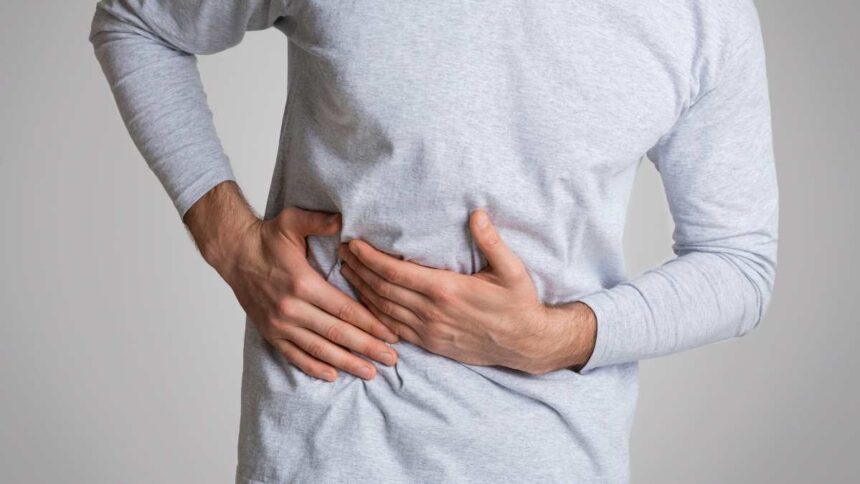The liver is the main detoxification organ, constantly trying to get rid of toxins and metabolic waste before they cause serious damage. Extraordinary health-conscious people, many times use over-the-counter products, especially nutritional supplements, to improve their overall well-being. Although many supplements support liver health, some can harm the liver.
The production and content of various herbal and dietary supplements (HDS) are not precisely regulated by The Food and Drug Administration. As a result, they are never formally tested for efficacy or safety. Consuming such multi-ingredient supplements can lead to potentially serious or even fatal fatty liver, liver toxicity, and liver damage.
Fatty liver
Fatty liver disease (steatosis) is a common disease caused by excessive accumulation of fat in the liver. A healthy liver contains a small amount of fat. This becomes a problem when fat makes up 5 to 1 percent of the liver’s weight. Mostly, a fatty liver does not cause serious problems or prevent your liver from working normally. However, in 7-30% of people with this condition, the fatty liver disease gets worse over time. The fatty liver goes through three stages:
- Causes liver inflammation and damages its tissues. This stage is known as steatohepatitis.
- Formation of scar tissues at the damaged part of the liver, which is known as fibrosis.
- The 3rd stage is when scar tissue replaces healthy tissues. You have cirrhosis of the liver at this stage.
Fatty liver caused by dietary supplements usually does not show symptoms in the early stages. However, constant fatigue and abdominal pain on the right side of the upper body are warning signs.
Your doctor may do an ultrasound, CT scan, liver biopsy, or liver fibroscan to diagnose the condition. Remember to check your liver enzymes if you have any liver disease. Seek medical attention if you notice signs of liver damage, such as severe vomiting, jaundice, etc.
What are the supplements causing fatty liver?
Vitamin A
It can damage the liver in high doses or with long-term use. Also, long-term use of niacin can cause fatty liver or liver damage in some people.
Niacin
It can be converted (to nicotinamide coenzyme) to NAD, which can be liver toxic in high doses. Energy drinks and shots often contain high concentrations of niacin. Excessive consumption of niacin in energy drinks can trigger severe hepatitis.
Kava
Most kava supplements come in pill form. Several reports state that the comparative effectiveness and safety of kava on the liver are still uncertain and may be harmful to the liver.
Some believe that combining kava with alcohol can damage the liver even at normal doses, increasing the risk of alcoholic fatty liver disease.
Overall, it is still unclear how much liver damage kava alone can cause. However, it is best avoided in people with liver problems until more information is available.
Valerian
Although valerian is generally safe for eight weeks at recommended doses, it contains many toxic compounds that can damage liver cells with prolonged use and cause fatty liver disease.
Not much research has been done on its liver-damaging effects, but it may be contaminated with germander, another herb with hepatotoxicity.
Black Cohosh
Black Cohosh often causes autoimmune hepatitis and fatty liver. However, it is unclear whether the cause is black hair or product contamination.
One study found that two women who took black cohosh developed acute liver necrosis. These are unusual cases. If you use black cohosh to treat hormonal imbalance, consult your doctor and check your liver enzymes for possible fat accumulation.
Pyrrolizidine alkaloids
An herb that can help treat migraines and seasonal allergies contains pyrrolizidine alkaloids, which are harmful to the liver. Plants synthesize pyrrolizidine alkaloids as secondary metabolites. More than 6000 plants contain more than 600 PAs and PA-N-oxides, and more than half are harmful to the liver.
Pyrrolizidine alkaloids in herbal preparations can damage the liver. However, it is still questionable whether these herbs are safe to use for a limited period. Therefore, people with severe liver disease should avoid this herb for safety reasons.
Kratom
The kratom plant provides energy, treats anxiety, mood swings, and depression, relieves pain, and reduces opioid withdrawal symptoms. Kratom causes acute liver damage and fatty liver.
These cases are rare, however, as most people get better after stopping the supplement. Many kratom products contain lead, so be careful when using them.
Polygonum Multiflorum (Fo-ti)
Polygonum Multiflorum of Chinese origin, used for its digestive and anti-aging properties, has been associated with liver damage in some cases. Alone or administered in traditional Chinese medicine (TCM) formulations, the herb Polygonum Multiflorum is among the top five hepatotoxic agents.
This herb can cause serious harm, including death, by damaging the liver. Studies show that most people get better after stopping further treatment; However, up to 10% of cases were severe or fatal and required a liver transplant.
Conclusion
Although daily intake of certain supplements is generally considered acceptable and may even be beneficial for promoting liver health, long-term use of large amounts can seriously damage the liver.
Using dietary supplements without knowing their solvents can cause fat to accumulate in the liver. Just because a supplement is labelled, “natural” doesn’t mean it’s necessarily healthy for you. The problem may get worse if you take several medicines or herbs that affect the liver. You must consult a doctor before starting any kind of supplement.
Socialbuzzness features articles on and about technology, business, lifestyle, and health. Socialbuzzness covers all kinds of news, including entertainment, technology, business, and finance.











